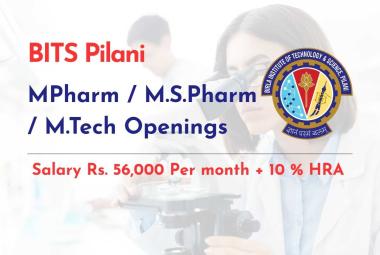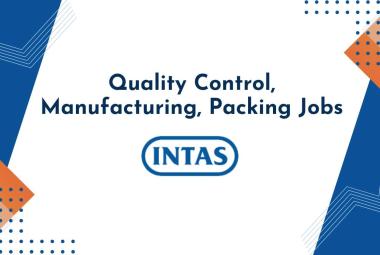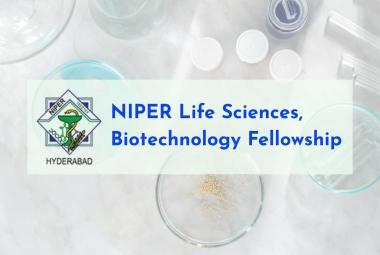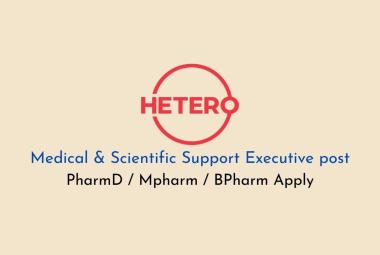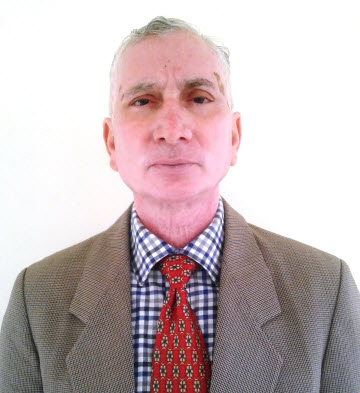 About Author
About Author
Dr. R. S. Thakur
Email: drramsthakur@gmail.com
ABSTRACT
Pharmacists are transforming global health by empowering patients and other health care providers through counselling, drug information and motivation for rational use of medicines. Pharmacists strive to eliminate medication errors and ensure strict patient compliance to achieve desired therapeutic outcomes. Pharmacists produce quality medicines and assure quality of medicines until expiry date by proper storage and preservation. While dispensing the prescription Pharmacists enhance efficacy and safety of medication by motivating patients for compliance of dosage regimen. Actually it is patient compliance which is important for optimum therapeutic outcome. In this plight patient counselling assumes eminent role. The counselling aspects and content differ from patient to patient, prescription to prescription and dosage form to dosage form. A comprehensive plan based on these three pillars of patient counselling must be meticulously designed and its effectiveness assessed repeatedly to improve upon and validate the counselling process. In the gigantic task of transforming health pharmacists role and priorities are discussed at length.
The efforts of pharmacist drastically reduces health care cost, disease burden and crowd in health system on the one hand and improves therapeutic outcomes, quality of life and happiness to patient on the other.
INTRODUCTION
Definition of Health
In 1948, WHO defined health as “a state of complete physical, mental and social wellbeing and not merely the absence of disease or infirmity.”(1) This definition was very broad and inclusive in context, at that time, as it covered mental and social aspects besides physical. The revolutionary changes in health care scenario, knowledge of diseases and changes in disease pattern, advances in drug discovery and development, emergence of pharmacothrapeutics, pharmacovigilance and pharmacoeconomics and the sound footing of pharmaceutical care have its own impact on the concept of health. Life expectancy is constantly increasing. Morbidity and mortality patterns are regularly changing. Chronic diseases, none communicable diseases are impacting the health like anything. Physical fitness and mental stress & strain are enormously affecting day to day life. Overall life style and quality of life are varying quite rapidly. Therefore, the need for revision of the definition of health is also felt.
Of course, this issue has been thought and deliberated by others too and the focus of debate has been on the word ‘complete’ in the WHO definition in relation to wellbeing. In fact ‘complete’ demands absolute absence of any abnormal feature with respect to all the three criteria of physical, mental and social wellbeing, which is difficult to achieve in real time situation. Moreover, with intent to achieve this complete wellbeing unnecessary medical intervention is ventured which ultimately complicates things beyond expectation, affects quality of life and the vicious cycle continues incessantly.
Pioneer efforts in this context are reported (2, 3) which enrich knowledge on this issue. Machteld Huber et al. (3) have concluded:-
“we propose the formulation of health as the ability to adapt and to self manage. This could be a starting point for a similarly fresh, 21st century way of conceptualising human health with a set of dynamic features and dimensions that can be measured.”
Coming back to WHO definition, emphasis is on wellbeing. This wellbeing is to be measured in terms of physical, mental and social health of the individual in terms of performance indicators. All the three parameters are interlinked and interdependent and accordingly invoke or revoke response in the other according to the situation. Now, therefore, in context of the 1948 definition perceivably none will seem healthy but in fact all are definitely not sick.
Physical health
It represents normal physiological function of human body and thus absolute wellbeing of mental functions and thus social acceptance as a noble healthy person. Any deformity in physiological function of any organ of the body unless reversed successfully, not only causes physical damages but also gives mental stress, worries and behavioural change. It is the behavioural change due to mental strain that adversely affects social wellbeing due to visible worries and distraction from usual activities.
Mental health
No individual can perform normally under mental stress. The ability, capacity and performances are affected depending upon the intensity of physical health deformities. After all it is the brain which coordinates functions of various organs and limbs. Therefore, reflection of physical distress is clearly demonstrated in mental wellbeing. Positive interaction between mind and body is adversely affected in case of compromised mental wellbeing. Interventions become essential for restoration of physical health to harmonize mental health.
Social health
It is more aptly related to performance of social obligations, managing work place challenges, and leading quality life. This parameter is relative to everything around the individual – the society at large and the community in particular. Here, age related factors, chronic disease related factors; long-term therapy related factors influence the most. A dynamic balance between the inevitable changes and challenges in health conditions and performance related limitations need to be reached out. Social health is stimulus to mental health and a catalyst for reducing the worries of physical health irrespective of age group.
Role of the pharmacist
In his opening remark at the WHO consultative group meeting on the role of the pharmacists in the health care system held at New Delhi from 13 to 16 December, 1988 Dr. U. Ko Ko, Regional Director, WHO Regional Office for South-East Asia had inter alia emphasized (4):-
“Only when the pharmacist has been accepted as a vital member of the health care team can the necessary supporting services be organized with the professionalism that they demand. In highly industrialized countries, acceptance of the need of professionalism in the supply and dispensing of drugs and health care appliances has long since been indispensable because of the complexity of modern health care technology. Recently, however, a striving for economy engendered by the ever burgeoning costs of health care within the public sector has lent much credence and immediacy to arguments that a redefinition of the role of the pharmacist could serve the interests of both individual patients and public at large.”
The objective of this meeting was to deliberate upon the knowledge and expertise of pharmacists and to review the contributions of pharmacists to the acquisition, control, distribution and rational use of drugs, and other health-related function of pharmacists and accordingly formulate proposals.
Dr. Ko Ko further stated:-
“... Pharmacists are uniquely qualified because:
• They understand the principles of quality assurance as they are applied to medicines;
• They appreciate the intricacies of the distribution chain and the principles of efficient stock-keeping and stock turnover;
• They are familiar with the pricing structures applied to medicinal products that obtain within the markets in which they operate;
• They are the custodians of much technical information on the products available on their domestic market;
• They are able to provide informed advice to patients with minor illness and often to those with more chronic conditions who are on established maintenance therapy;
• And not least, they provide an interface between the duties of prescribing and selling medicines and, in so doing; they dispose of any perceived or potential conflict of interest between these two functions.”
This comprehensive WHO document (4) is universal index of practice standards of pharmacists for achieving health care goals, which encompass every transformational aspect of global health. To this ideal patient counselling assumes very prominent importance.
Patient Counselling
The WHO document while discussing the scope of pharmacy and the functions of pharmacists (5) affirms:-
“With the development of specific and potent synthetic drugs, the emphasis of the pharmacist’s responsibility has moved substantially towards the utilization of scientific knowledge in the proper use of modern medicines and the protection of the public against dangers that are inherent in their use.”
While discussing the role of community pharmacists the aforesaid WHO document inter alia mentions: -
“In addition to ensuring an accurate supply of appropriate products, their professional activities also cover counselling of patients at the time of dispensing of prescription and non-prescription drugs, drug information to health professional, patients and the general public, and participation in health promotion programmes.”
Methodology
Assessment of health status
Public health is one of the most important concerns of every government. A healthy nation is productive and prosperous nation. Functional perfection, quality of life and sense of wellbeing are important indicators of good health. Naturally, disability or inability to perform daily life activities and a sense of reduced or compromised quality of life are considered as indicators of health status. Health assessment chart has been devised (6, 7) which is used for research and analyses purposes to determine health status of individuals. This is questionnaire based assessment on validated health status scale. Socio-demographic variables are also taken into consideration while assessing health status.
Essential components of health
As the WHO definition suggests wellbeing and fitness signifies good health and definitely being overweight and obese are not at all healthy. At the same time chronic diseases like diabetes, cancer or psychological problems, mental conditions like depression and stress affect both wellbeing and fitness and need to be appropriately addressed to improve quality of life. Factors responsible for maintaining good health are nutrition, hygiene, habits and physical activities.
Nutrition
A well balanced diet regulates and maintains normal physiological functions of the body and controls health problems. A nutritious diet must have adequate and optimum amount of carbohydrates, fats, proteins, minerals, vitamins besides potable water. The ideal diet components from natural sources are more appropriate and healthy. An ideal diet protects against malnutrition diseases and disabilities. Awareness about importance of diet and nutrition is essential component of health. Nutrition programmes are progressive step in this direction. Effective campaign stressing glorious role of nutrition deserves special attention to build a healthy nation.
Role of nutrition on health has been extensively researched and reported. Diet should be such that body gets all the nutrients and micronutrients like vitamins and minerals in adequate quantity to work at its best. Selection of food items should be such that it is rich in nutrients and low in calories so that overweight and obesity are avoided.
Balanced diet improves immunity to fight against disease affliction, assures wellbeing, enhances the process of recovery from illness, and provides adequate energy for routine activities and performances at the same time reduces the risk of affliction with noncommunicable diseases too.
Eating whole grains, plenty of vegetables and fruits, dairy products are gateway to proper nutrition and healthy life. Of course the food must be cooked and processed in hygienic manner to restore and preserve its nutrition value and consumed in hygienic way to avoid contamination. Contaminated or stale food is always injurious to health or even life.
Hygiene
Personal hygiene and clean surroundings, pollution free environment have huge impact on health and wellbeing of individuals. Human body is good host of disease causing microbes and parasites. Be it body surface or body openings the invading organisms thrive and infect. Role of personal hygiene is of paramount importance. Appropriate cleaning measures like washing, brushing, bathing, cleaning clothes, cleaning utensils and cutlery are important for personal and domestic hygiene to promote good health. At the same time proper sewage system and garbage disposal are important for environmental hygiene.
Industrialization is big threat to environment and air pollution is becoming increasingly problematic. Control of particulate matter level besides obnoxious and injurious gases in the air is big challenge and threat to public health. More attention is paid to address this issue is better for health.
It goes without saying that cleanliness is next to godliness. This ancient phrase is spirit behind the religious rituals encompassing both personal and environmental hygiene. Even the spirit behind the celebration of festivals focuses on personal and environmental cleaning and purification using various time tested methods and waste disposal and management. Impact and influence of hygiene is visible on physical, mental and social wellbeing. Moreover, hygiene is most important aspect of infection control. Swatchh Bharat Abhiyan is a leap forward in this direction because it emphasises both personal and social aspects of cleanliness. It is bound to bring demographic change in pattern of spread of communicable/infectious diseases and build a healthy nation.
Habits
Habit by all means is individual factor and has influence on life style and a reflection of culture. Bad habits do affect health and happiness. Few habits are very unhygienic and thus affect health causing physical or mental problems and social isolation. Spiting, sneezing and littering are the worst habits putting the society as a whole not only to inconvenience but at the risk of infection. Even the eating habits matter. Excessive eating make a person prone to overweight, obese and vulnerable to high blood pressure, diabetes, hyperlipidemia, heart disease, cancer and so on. Habits that support normal physiological functions and avoid contamination are useful for safeguarding health. People must nurture good and healthy habits to lead a healthy life
Physical activities
Importance of physical exercise and fitness can be hardly ignored in the plight of maintaining good health. It harmonizes physiological functions and rejuvenates the body. Physical activities are directly linked to mental and psychological health. Regular participation in outdoor games and sports, yoga and aerobic exercises, meditation etc. has high impact on up keep of health.
Indicators of health
Birth rate, death rate, infant mortality, and average life expectancy are considered as indicators of health. In 2018 birth rate in India was calculated as 18.6 per one thousand populations and death rate during 2017 was recorded as 7.2 per one thousand populations. The average life expectancy for Indian during 2017 was recorded around 69 years against global average of 72 years. (8) In India the average infant mortality rate lies at 46 out of 1000 live births. (9) The major cause of infant mortality is identified as underweight at birth and diarrhoea.
Transforming health
Transforming health is possible through transforming health care. Professionalism, accountability and utilisation of information technology are essential components of transformation. Aim is to do better which can be achieved through innovative integration of thoughts and ideas to devise better plan. As medicine plays pivotal role in transforming health and pharmacists occupy central stage in making quality medicines available for safe, effective and economic therapy pharmacists’ role in transforming health hardly needs any advertisement. Pharmacists efficiently integrate professionalism, accountability and IT for the benefit of patient and the health system. The efforts of pharmacist drastically reduces health care cost, disease burden and crowd in health system on the one hand and improves therapeutic outcomes, quality of life and happiness to patient on the other.
Role of medicines
Medicine is an essential element of health care system. It is an inevitable commodity in transforming health. Equitable access, affordability and rational use of medicines are basic needs of health care. Availability of quality-assured medicines is a global challenge. Low and middle income countries face special challenge as their market is targeted as dumping ground for substandard medicines due to lack of efficient analysis and testing facilities. According to WHO report of 2017 about 10.5% of medicines sold in low and middle income countries, including India are substandard and falsified. (10) A report of 25th April 2019 from United States Trade Representative (USTR) claims “up to 20% of drugs sold in the Indian market are counterfeit and could represent a serious threat to patient health and safety”. However, a survey commissioned by Health and Family Welfare Ministry of India reported that 3% of the drug in the country were not of ‘standard quality’ and 0.28% were spurious.
Medicines are used in diagnosis, treatment, mitigation and prevention of diseases. Quality of the medicine and rational use of medicines is crucial. These aspects need expertise that is specially possessed by pharmacists. Pharmacists play an important role in transforming efficacy and safety of medicines. Advanced technologies are applied to produce targeted drug delivery systems and thus put a break on side effects. Such transformation of dosage forms are result of extensive research by pharmacists.
Role of pharmacists
Pharmacist is an important actor of health care system. Integrated professional coordination and cooperation are necessary elements of patient counselling content. Updating knowledge, improving techniques and use of appropriate tools are essential for effectiveness of patient counselling. The patient must be convinced that the medication prescribed is absolutely necessary and only if they use it strictly in accordance with the instructions at desired frequency and up to designated period of treatment the intended outcomes will be forthcoming. This is not an ordinary task and it demands patient’s involves. At the end of the counselling verification of extent to which patient has understood about his medicines is a must. How the patient will take/use the medicines, how frequently and how long the medicines will be used must be asked to judge the effectiveness of counselling. One most important aspect of patient counselling is communication must be in the mother tongue of the patient and as far as possible demonstration, sketches etc. should be used to enhance penetration of communication.
Health education is another aspect which deserves special attention for adequate appreciation of the components of health and health indicators. Pharmacists being easily approachable can play vital role in this enterprise. Special emphasis should be on nutritional aspects, personal and societal hygiene, culturing and nurturing good habits and maintaining optimum physical activities.
Preventive health measures are another area which needs deep penetration and acceptance in society. Powerful and inspirational guidance on preventable diseases is useful tool. The preventive measures are categorised into three - primary, secondary and tertiary.
The primary preventive measure is vaccination. Importance of vaccination and its role in combating contagious diseases is well established. How disparate the world is about Corona vaccine is the proof of the above contention.
The secondary preventive measures cover wellness tips nutrition and physical activities are examples of this category. Therefore avoiding sedentary life and access to affordable nutritious diet are the focal area in which people at large should be well trained.
The tertiary preventive measure is a compromise to change life style and cope with the disease or partial disability. It prevents worsening of disease or injury condition like light duty recommended by doctor or medical leave recommended by doctor to promote faster recovery and recoupment.
Conclusion
Mantra for transforming global health lies in provision of awareness regarding nutrition, hygiene, habits, activities, rational use of medicines, complete eradication of medication errors and rigorous patient compliance. If these are properly inculcated in life transformation of global health will become a reality and prosperity will no more remain a distant dream.
REFERENCES
1. WHO. Constitution of the World Health Organization. 2006. Available at: www.who.int/governance/eb/who_constitution_en.pdf. accessed on 14.09.2020
2. Larson JS. The Conceptualization of Health. Medical Care Research and Review. 1999;56(2):123-136. doi:10.1177/107755879905600201
3. Machteld Huber et al. How should we define health? BMJ 2011;343:d4163 doi: 10.1136/bmj.d4163 Available at: https://www.researchgate.net/publication/51523299_How_should_we_define_health/link/5429eced0cf29bbc12676e8b/download accessed on 14.09.2020
4. The Role of the Pharmacist in the Health Care System. World Health Organization. WHO/PHARM/94.569, 1994 p 2.
5. Ibid. p 8-10.
6. Nelson E, Wasson J, Kirk J, et al. Assessment of function in routine clinical practice: description of the COOP Chart method and preliminary findings. J Chronic Dis. 1987;40 Suppl 1:55S-69S. doi:10.1016/s0021-9681(87)80033-4
7. Van Weel C, König-Zahn C, Touw-Otten FWMM, van Duijn NP, Meyboom-de Jong B. Measuring functional health status with the COOP/Wonca charts. Northern Centre for Health Care Research, University of Groningen, 1995. Available at: https://www.umcg.nl/SiteCollectionDocuments/research/institutes/SHARE/assessment%20tools/handleiding_coopwonca2edruk.pdf accessed on 16.09.2020.
8. Sandhya Keelery. State of health in India 2020 - statistics & facts. Jul 15, 2020. Available at: https://www.statista.com/topics/5191/state-of-health-in-india/ accessed on 17.09.2020
9. http://www.indiahealthstat.com/ accessed on 17.09.2020.
10. Kiran Kabatta Somvanshi. Substandard drugs are a bigger problem for India than fakes. The Economic Times. May 2, 2019.
NOW YOU CAN ALSO PUBLISH YOUR ARTICLE ONLINE.
SUBMIT YOUR ARTICLE/PROJECT AT admin@pharmatutor.org
FIND OUT MORE ARTICLES AT OUR DATABASE



